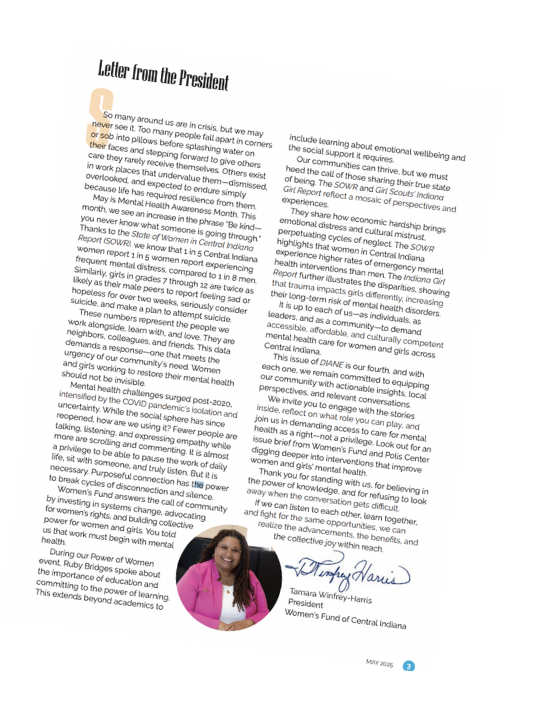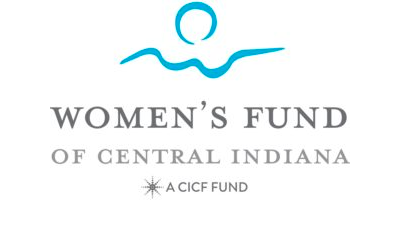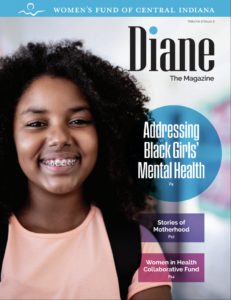So many around us are in crisis, but we may never see it. Too many people fall apart in corners or sob into pillows before splashing water on their faces and stepping forward to give others care they rarely receive themselves. Others exist in work places that undervalue them—dismissed, overlooked, and expected to endure simply because life has required resilience from them.

May is Mental Health Awareness Month. This month, we see an increase in the phrase “Be kind— you never know what someone is going through.” Thanks to the State of Women in Central Indiana Report (SOWR), we know that 1 in 5 Central Indiana women report 1 in 5 women report experiencing frequent mental distress, compared to 1 in 8 men. Similarly, girls in grades 7 through 12 are twice as likely as their male peers to report feeling sad or hopeless for over two weeks, seriously consider suicide, and make a plan to attempt suicide.
These numbers represent the people we work alongside, learn with, and love. They are neighbors, colleagues, and friends. This data demands a response—one that meets the urgency of our community’s need. Women and girls working to restore their mental health should not be invisible.
Mental health challenges surged post-2020, intensified by the COVID pandemic’s isolation and uncertainty. While the social sphere has since reopened, how are we using it? Fewer people are talking, listening, and expressing empathy while more are scrolling and commenting. It is almost a privilege to be able to pause the work of daily life, sit with someone, and truly listen. But it is necessary. Purposeful connection has the power to break cycles of disconnection and silence.
Women’s Fund answers the call of community by investing in systems change, advocating for women’s rights, and building collective power for women and girls. You told us that work must begin with mental health.
During our Power of Women event, Ruby Bridges spoke about the importance of education and committing to the power of learning. This extends beyond academics to include learning about emotional wellbeing and the social support it requires.
Our communities can thrive, but we must heed the call of those sharing their true state of being. The SOWR and Girl Scouts’ Indiana Girl Report reflect a mosaic of perspectives and experiences.
They share how economic hardship brings emotional distress and cultural mistrust, perpetuating cycles of neglect. The SOWR highlights that women in Central Indiana experience higher rates of emergency mental health interventions than men. The Indiana Girl Report further illustrates the disparities, showing that trauma impacts girls differently, increasing their long-term risk of mental health disorders.
It is up to each of us—as individuals, as leaders, and as a community—to demand accessible, affordable, and culturally competent mental health care for women and girls across Central Indiana.
This issue of DIANE is our fourth, and with each one, we remain committed to equipping our community with actionable insights, local perspectives, and relevant conversations.
We invite you to engage with the stories inside, reflect on what role you can play, and join us in demanding access to care for mental health as a right—not a privilege. Look out for an issue brief from Women’s Fund and Polis Center digging deeper into interventions that improve women and girls’ mental health.
Thank you for standing with us, for believing in the power of knowledge, and for refusing to look away when the conversation gets difficult. If we can listen to each other, learn together, and fight for the same opportunities, we can realize the advancements, the benefits, and the collective joy within reach.
Tamara Winfrey-Harris
President
Women’s Fund of Central Indiana
This article was published within the May 2025 issue of the Women’s Fund’s Diane magazine.

